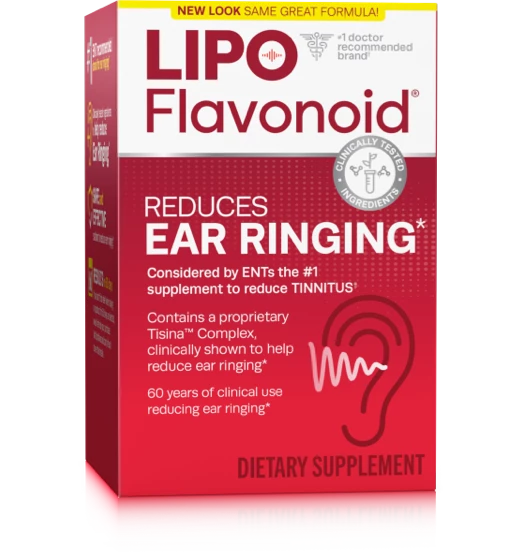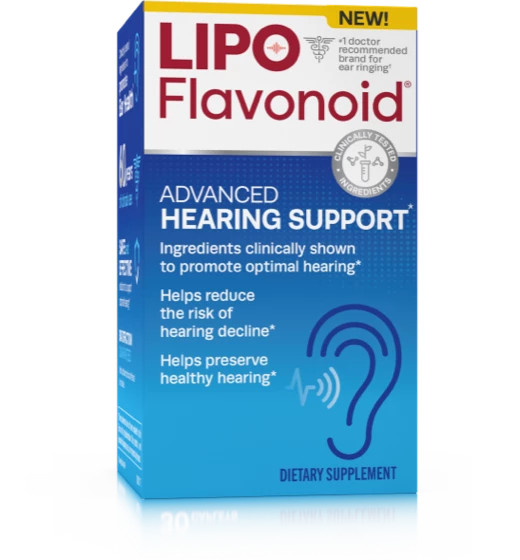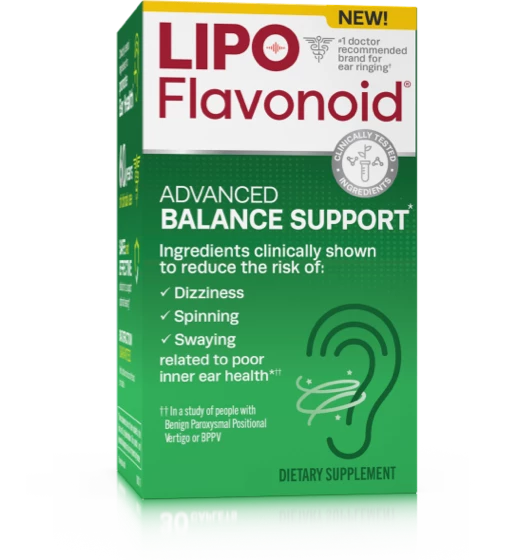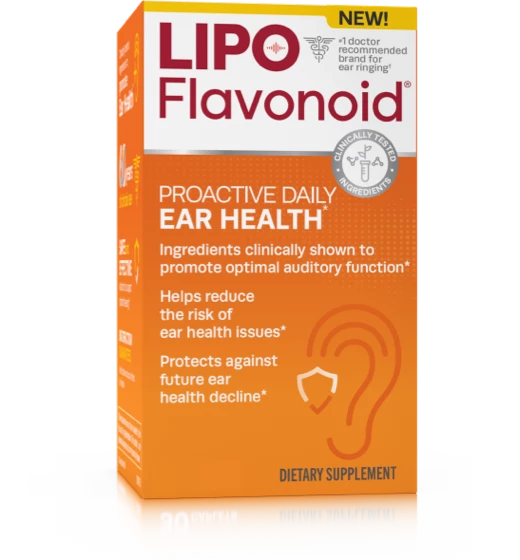- Products
- Science
-
Resources
- Tinnitus Resources
- What is tinnitus?
- Causes of tinnitus
- Tips for managing tinnitus
- Prepare for your doctor's visit
- PTSD and tinnitus
- Tinnitus FAQs
- Hearing Loss Resources
- What is hearing loss?
- Degrees of hearing Impairment
- Types of hearing loss
- Causes of hearing loss
- Treatment options for hearing loss
- Buy Now
- Coupons
- Test Your Hearing
- Test Your Hearing
- Healthcare Professionals
7 Ways to Turn Health Intentions into Daily Health Habits
You’ve made a decision to benefit your health. Good for you! The next step is to turn that desired health-related behavior into a health habit that you just do, routinely, and don’t even have to think about any more.
Whether you’re determined to drink a glass of water with each meal, apply sunscreen every morning, or take Lipo-Flavonoid as directed to help improve ringing in the ears, transforming your intention into reality can be easier if you follow these habit-forming tips.
- Be specific and focused. Don’t make your goal too big or too vague. Aim for something tangible and realistic, like “I will take a Lipo-Flavonoid three times each day,” or “I will walk for 15 minutes after lunch Monday to Friday.”
- Go public. Tell others what you’re up to. When you speak openly about your goals, you are more likely to achieve them. Talking about your ambitions makes them feel real and also makes you accountable; not only to yourself, but also to your friends and family, who are rooting for you.
- Find ways to make it automatic. How can your new health habit conveniently fit into your routine? Can you trigger the behavior whenever you’re in a certain room? Would Lipo-Flavonoid® packages in easy-to-spot locations at home or at work remind you to take it? Would stashing workout clothes in your car empower you to squeeze in exercise sessions?
- Measure your success. Keep track of the days that you’ve achieved your goal by marking them off on a calendar. Visual reminders can encourage you to stick with it so you don’t break your streak.
- Reward yourself when you’ve reached a milestone. Did you remember to take Lipo-Flavonoid three times each day all week? Pat yourself on the back and do something nice for yourself like taking a relaxing bath or watching a favorite movie – it’s your treat, so you name it!
- Give yourself lots of time. According to research published in the European Journal of Social Psychology 2 http://onlinelibrary.wiley.com/doi/10.1002/ejsp.674/full it takes between 18 and 254 days to convert a new behavior into a habit. Be patient and accept of the process.
- Go easy on yourself. Scientists2 have found that just because people miss a day or two while trying to form a new habit, it doesn’t mean they’re destined to fail. Forgot your Lipo-Flavonoid® today? Just get back on the wagon tomorrow. Wellness is a lifelong journey — not an all-or-nothing proposition.
Whether your challenge is tinnitus or something else, we commend you for taking steps to incorporate new health habits – like Lipo-Flavonoid® — into your day.
Lipo-Flavonoid® products contain #1 doctor-recommended lemon bioflavonoids and other essential nutrients to help support ear health. After more than 50 years of clinical use, Lipo-Flavonoid® is still the supplement recommended most by ENTs for the treatment of tinnitus.1
References:
- April 2016 Survey. Clarion Brands Inc. Data on file.
- Lally, P., van Jaarsveld, C. H. M., Potts, H. W. W. and Wardle, J. (2010), How are habits formed: Modelling habit formation in the real world. Eur. J. Soc. Psychol., 40: 998–1009. doi:10.1002/ejsp.674 http://onlinelibrary.wiley.com/doi/10.1002/ejsp.674/full
*These statements have not been evaluated by the Food and Drug Administration. These products are not intended to diagnose, treat, cure or prevent any disease.
*Survey data on file
REFERENCES:
- April 2018 Survey. Clarion Brands Inc. data on file.
- Williams H, Hedgecock L. Citrus Bioflavonoids, Ascorbic Acid and Other B-vitamins in the Treatment of certain types of neurosensory deafness a preliminary report. Staff meeting of the Mayo Clinic (1962).
- Tinnitus Overview. Mayo Clinic website http://www.mayoclinic.org/diseases-conditions/tinnitus/basics/definition/con-20021487. Accessed Sept. 7, 2016.
- Understanding the Facts. American Tinnitus Associations website https://www.ata.org/understanding-facts. Accessed Sept. 7, 2016.
- Slattery WH, Fayad JN. Medical treatment of Meniere's disease. Otolaryngologic Clinics of North America 1997; 30:1027-37.
- Kumar S, Pandey AK. Chemistry and Biological Activities of Flavonoids: An Overview. The Scientific World Journal. 2013;2013:162750. doi:10.1155/2013/162750.
- Fetterman BL, Saunders JE, Luxford WM. Prognosis and treatment of sudden sensorineural hearing loss. Am J Otol 1996; 17:529-36.
- Arenberg I, Bayer R. Therapeutic Options in Meniere’s Disease. Arch Otolaryngol 1977;103: 589-93.
- Shaia F, Sheehy J. Sudden sensori-neural hearing impairment: a report of 1,220 cases. Laryngoscope 1976; 86:389-98.
- Herschberg S. Meniere’s disease. J Am Osteopathic Association 1974; 73:540-6.
- Wolfson R. Treatment of Meniere’s disease. Modern Treatment (1969) 6,3, 553-567.
- Rubin W. Vestibular suppressant drugs. Arch Otolaryngol 1973; 97:135-8




